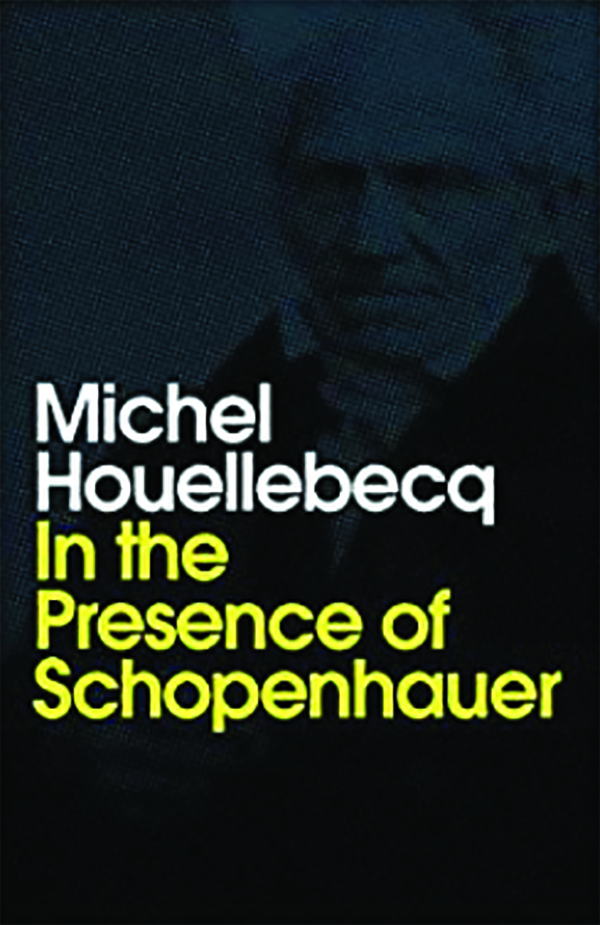Arthur Schopenhauer is a philosopher who’s never been much liked by other philosophers. Bertrand Russell described his system as “tired and valetudinarian” and too averse to reform. Ludwig Wittgenstein called him “a shallow thinker.” Friedrich Nietzsche was for him — until he was against him. His writing went from “a cheerfulness that really cheers” to “cadaverous perfume.” The feeling was entirely mutual. Despite earning a doctorate in philosophy, Schopenhauer never took an official academic post and dedicated bilious vitriol toward his more fashionable peers. He described Johann Gottlieb Fichte’s work as “raving nonsense” and Georg Wilhelm Friedrich Hegel as an “illiterate charlatan.” Both responded by ignoring him.
Schopenhauer’s work has always dwelled in the shadows of philosophy. It’s not an entirely unfair outcome given that his work has never felt like “philosophy,” which is too modest a description. His view of humanity — we are adrift in a godless universe where suffering is the norm, driven by an irrational will to survive unless we find the means to deny it — did not welcome argument: You accepted it or rejected it. From the first publication of The World as Will and Representation 200 years ago, Schopenhauer has fallen in and out of favor. For artists such as Thomas Mann, Schopenhauer provided not so much a “theory of knowledge” or “wisdom” as he did “vitality,” “personal character,” and “passion.”

Michel Houellebecq’s short book In the Presence of Schopenhauer is the latest example of an artist not just paying homage to Schopenhauer but celebrating a deep, spiritual connection with him. For Houellebecq, as for Nietzsche, this connection goes back to an accidental encounter in his mid-20s, “very late in life for a major discovery.” In Houellebecq’s case, it was finding Aphorisms on the Wisdom of Life in the library. “And then, in a few minutes, everything dramatically changed.”
Behind every author who I’ve been told is great by more than six people, there is a superfan. I think of Zadie Smith’s humble introduction to J.G. Ballard’s Crash or anything Martin Amis has written about Vladimir Nabokov. Houellebecq’s first published prose work, in fact, was his 1991 study of the horror writer H.P. Lovecraft, H.P. Lovecraft: Against the World, Against Life. Like In the Presence of Schopenhauer, Lovecraft is as much a personal testimony about a writer who changed Houellebecq’s life as it is a work of criticism. Lovecraft, however, is a long, fully realized essay. Schopenhauer, a scant 55 pages long (not including a preface and some endnotes), seems abrupt and half-finished.
Houellebecq began translating Schopenhauer in 2005 for what was intended to be a more ambitious project. The result is a bit disjointed. The text combines passages from Schopenhauer’s works, sometimes long ones, with Houellebecq’s commentary on them. One could generously describe the result as a “dialogue,” as if Houellebecq, cigarette in hand, were sitting across from his hero’s ghost on a Charlie Rose-like set. On paper, however, it presents more like scraps from a commonplace book or drafts for a very narrowly themed Tumblr account. It glides over references — to Nietzsche and Auguste Comte, for instance — that presume a certain level of familiarity from the reader but do not compel curiosity for novices.
This is not to say that the book is entirely slapdash or lacking in insight. Houellebecq pays special attention to Schopenhauer’s aesthetics, which are crucial to his denial of the existence of free will. “Before Schopenhauer, the artist was generally seen as someone who manufactured things,” Houellebecq writes. “But the original point, the generating point of all creation, is fundamentally quite different; it consists in an innate (and thus not teachable) disposition for a passive and, as it were, dumbstruck contemplation of the world.” This aesthetic of “peaceful contemplation” prizes the sublime over the pretty and intuition over didacticism. It is “detached from all thought and all desire, of all the objects of the world … as simple as it is profoundly original”:
Houellebecq wants to show that Schopenhauer’s philosophy is about more than vitality and passion. Schopenhauer did not write to make readers better, more self-aware people but to explain the world’s cruelty and to provide them with an escape hatch. The book is at its most enjoyable when Houellebecq displays Schopenhauer’s lucid prose, which can be “as deep as the abyss, majestic in its desolation and horror,” such as this description of the food chain, which Houellebecq dedicates “especially to ecologists”:
“For what fault must they endure such a torment?” Schopenhauer asks. “There is only one answer: in this way the will to live objectifies itself.”
The execution of In the Presence of Schopenhauer is unsatisfactory, but I wonder if Houellebecq’s curation is enough to spark renewed curiosity in the man’s work. Of course, the say-so of one admiring author is not enough. Schopenhauer’s first brush with notoriety came late in his life, after he’d repurposed his philosophy into more accessible essays and after Europe had become disillusion with the revolutionary fervor of 1848. 2020 has given us one object lesson after another on biological contingency. It remains to be seen whether Schopenhauer’s elegant remedies are bitter medicine or sweet poison.
Chris R. Morgan is a writer from New Jersey. Follow him on Twitter: @CR_Morgan.
